OOPs provides several benefits like reduced complexity, reusability of code, and less redundancy. It achieves this through concepts like encapsulation, inheritance and polymorphism. Some disadvantages are a steeper learning curve, larger program size and slower execution compared to procedural programming. OOPs can be applied in areas like databases, simulation, web applications and user interfaces. C++ is an object-oriented language that builds upon C with additional features like classes, function overloading and exception handling. It requires a C++ compiler to translate the code to an executable file.
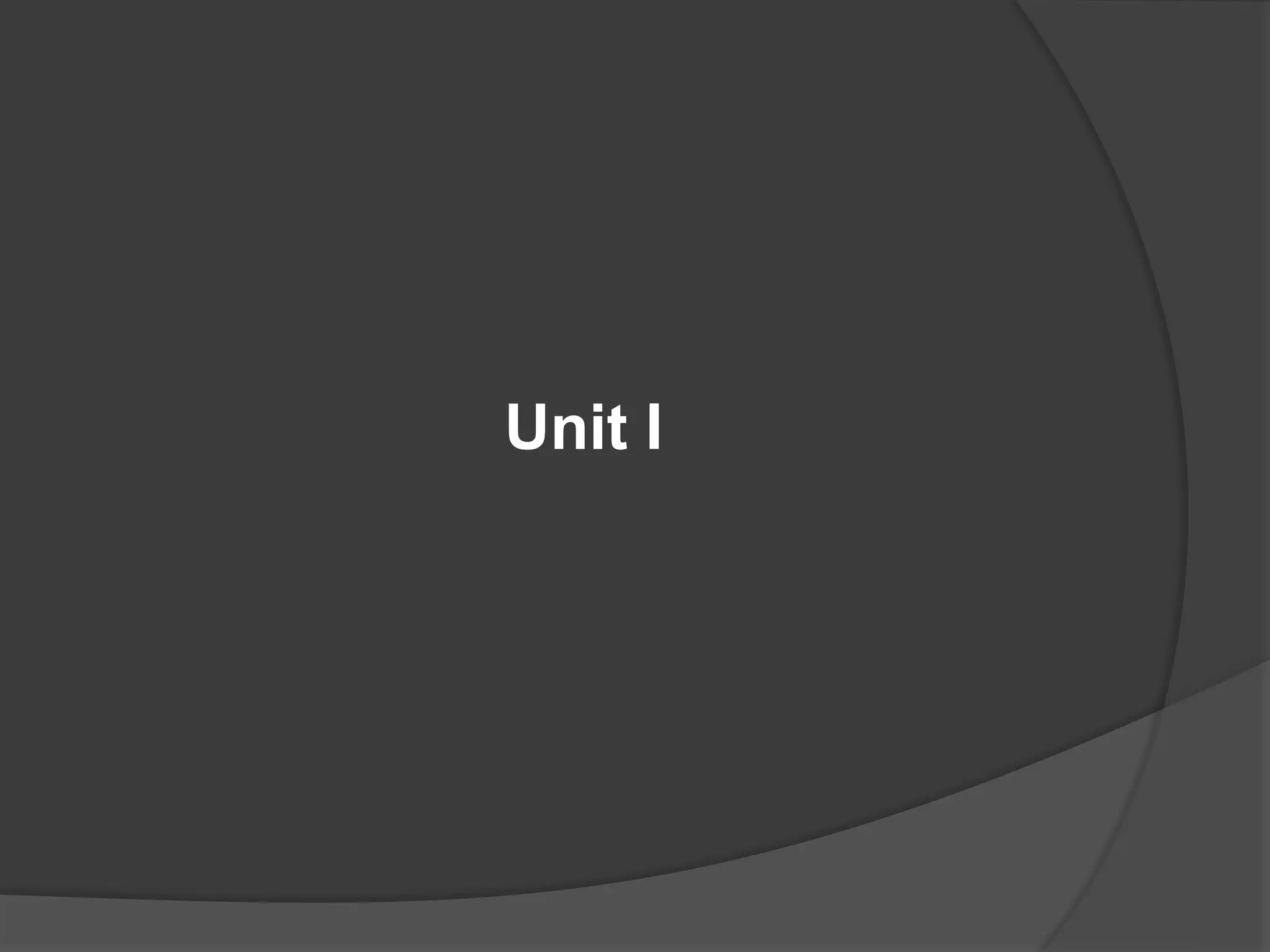
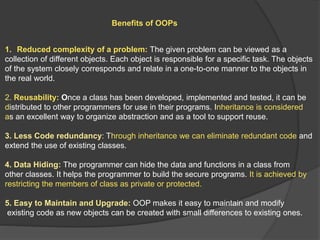
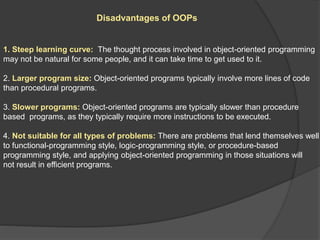
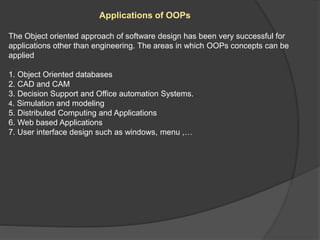
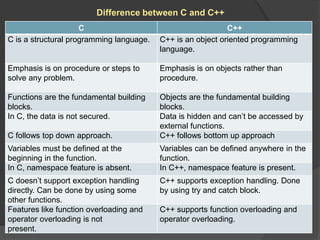
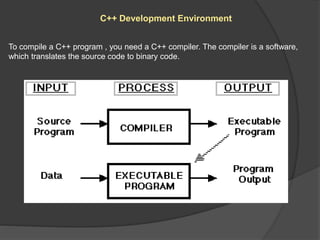
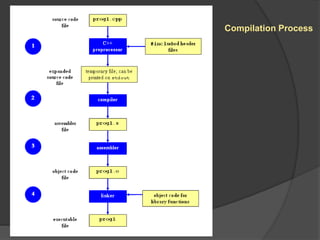
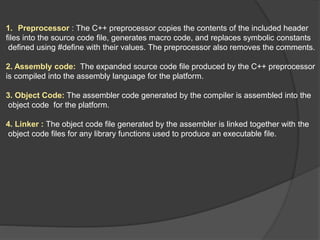
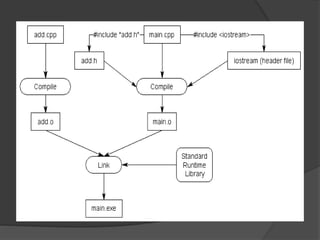
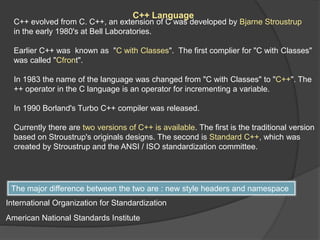
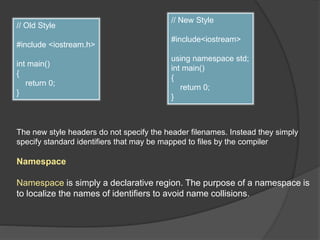
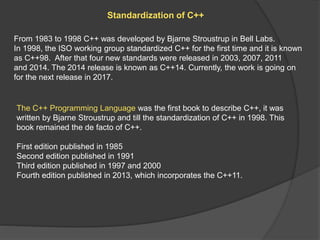
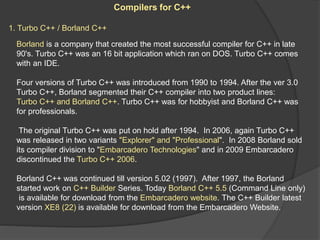
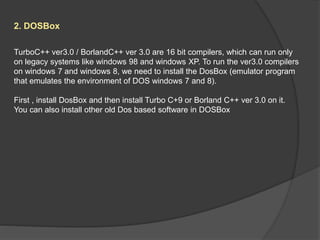
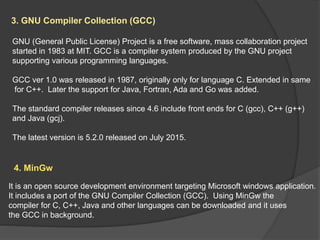
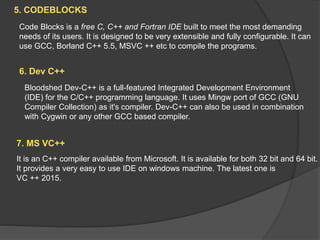
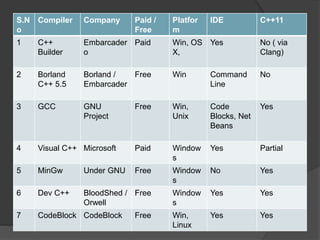
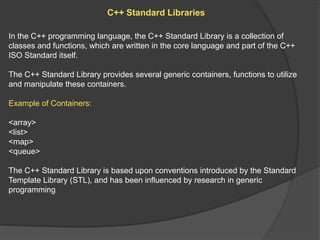
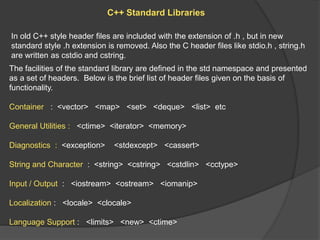
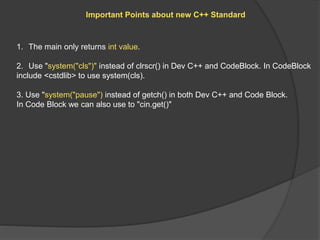
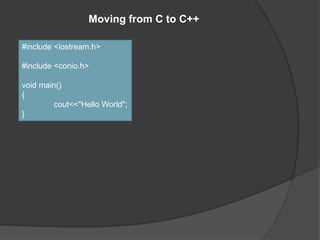
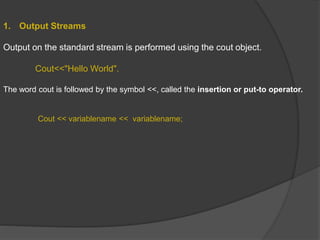
![2. Input Stream
void main()
{
char name[25];
int age;
cout<<"Enter name";
cin>>name;
cout<<"Enter age";
cin>>age;
cout<<"Details are "<<endl;
cout<"Name = "<<name <<endl;
cout<<"Age = " <<age<<endl;
}](https://image.slidesharecdn.com/uniti-161019060927/85/Unit-i-23-320.jpg)
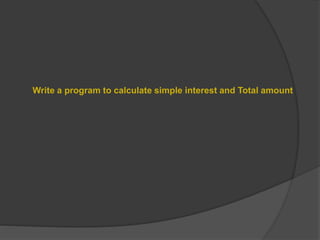
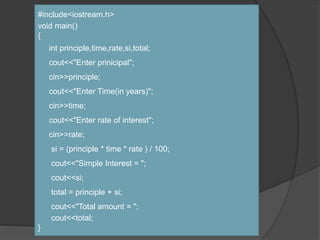
![3. How to declare constants
const [DataType] variablename = constantvalue
e.g.
const float PI = 3.1452;
const int TRUE = 1;
const int FALSE = 0;
Write a program to calculate the area of circle
We cannot change the value of constant variable and the value of constant
value is treated as read only.](https://image.slidesharecdn.com/uniti-161019060927/85/Unit-i-26-320.jpg)
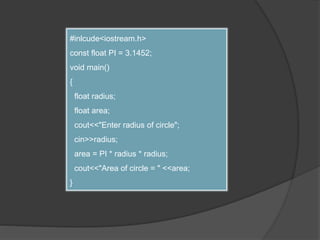
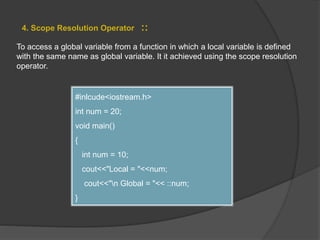
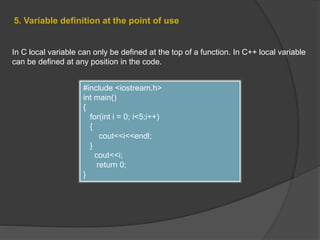
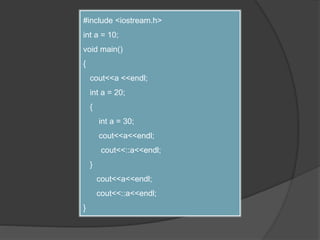
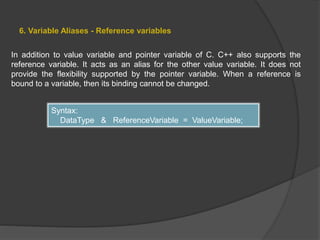
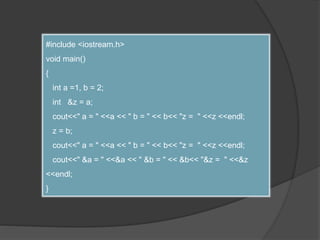
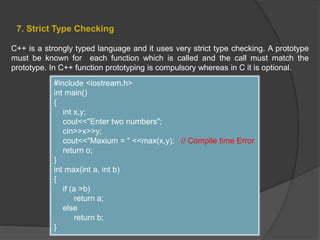
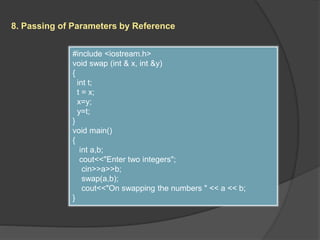
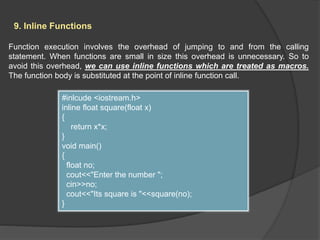
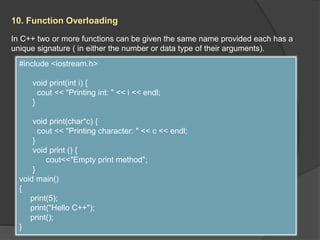
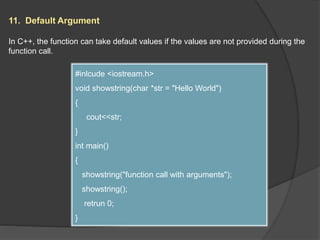
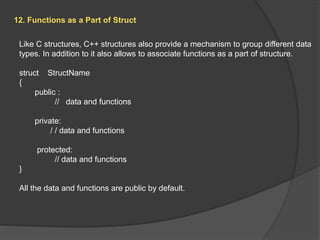
![13. Runtime Memory Management
The memory management functions such as malloc(), calloc() and free() in C, have
been improved and evolved in C++ with the new and delete operators.
int *a = new int [100]; // In C++
int *a = (int *) malloc (sizeof (int) * 100);](https://image.slidesharecdn.com/uniti-161019060927/85/Unit-i-39-320.jpg)